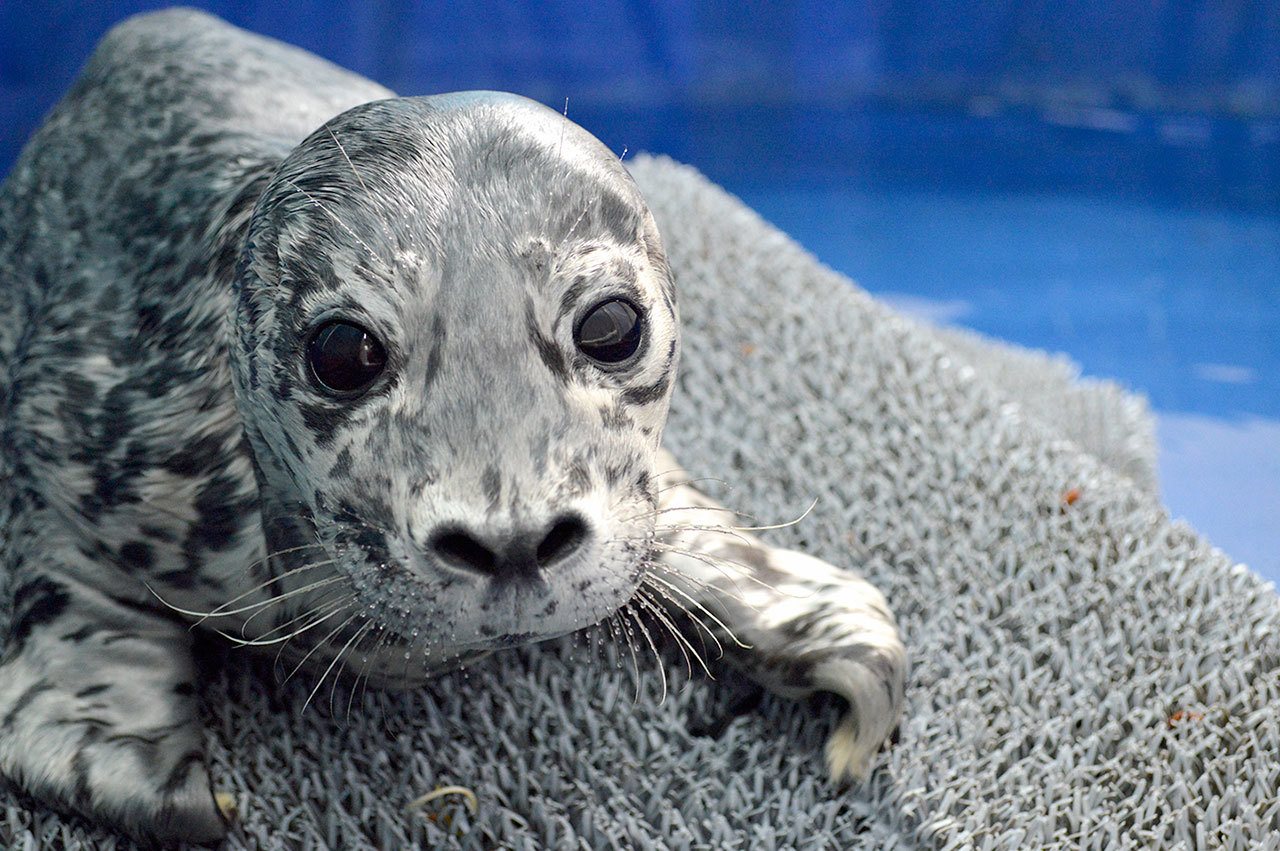LYNNWOOD — A two-week-old harbor seal pup is doing well after being brought in to PAWS lethargic and dehydrated.
Beach walkers reportedly spotted the pup just south of the Edmonds dog park around June 23. They held and petted it because they thought the animal, left alone on the shore, was in distress.
It’s a common mistake, and one that can be deadly for animals, PAWS wildlife director Jennifer Convy said. It’s also illegal to harass, feed, capture or kill seals and other marine mammals. Every summer, Convy’s team works to rehabilitate seal pups that were abandoned after human interaction.
It’s normal for mother seals to leave pups warming on the beach while they catch fish. The pups generally are not in danger. However, human touch or proximity can scare the mother off permanently.
“Just don’t get close,” Convy said, noting that the rule applies to any baby wild animal. “The parents are probably in the area and if they see you, they’ll get territorial or they’ll flee and they won’t come back. Then you’ve just orphaned that animal.”
The Edmonds seal pup is at least the fifth along the Washington and Oregon coastline to be abandoned due to human interaction this year. Some pups have to be euthanized because wildlife officials determine they are in too poor a state to be rehabilitated or returned to the beach. That was the case in May when a seal was carried from a Westport beach in a recyclable shopping bag by someone who thought the animal needed help.
The pup at PAWS still had part of its umbilical cord attached when it was brought in, according to Edmonds Seal Sitters. PAWS only takes in pups if NOAA Fisheries gives the OK.
“When he came in, he was really just thin and emaciated, dehydrated,” Convy said.
Harbor-Seal-PAWS-June-2016 from Everett Herald on Vimeo.
At least five seal pups were rehabilitated at PAWS last summer. This is baby season, the busiest time of year for wildlife centers. People bring in animals they think were abandoned when, in many cases, they weren’t.
“People pick up and essentially accidentally kidnap those baby animals,” Convy said.
Seals are common on Washington beaches and hard to resist, she said. Pups are adorable and alone, which triggers the impulse to help. There are signs on most beaches, including Edmonds, that warn people not to touch wildlife. Those often go unheeded.
Rehabilitating seal pups requires keeping them separate from people, Convy said. They can’t be released if they become accustomed to humans. They also must learn to catch and eat live fish.
At Snohomish County beaches, harbor seal baby season starts in June and continues into August.
Convy urges people who live near or spend a lot of time at beaches to politely say something if they see someone approaching a seal. Most people who interact with the pups think they’re rescuing the animal. A friendly warning not only could save the seal’s life, it could save a well-meaning beachcomber some heartbreak.
Experts caution people not to approach for pictures or “selfies” with the pups. Even without touching, proximity is enough to scare mom away.
People can enjoy watching and taking pictures from afar, Convy said.
If a seal has been in the same spot for multiple days or if it appears to be hurt, call the NOAA Seal Hotline at 866-767-6114.
As for the little guy at PAWS, Convy hopes to release him this fall.
“Out of all of this, so far he’s doing OK,” she said.
Kari Bray: 425-339-3439; kbray@heraldnet.com
Talk to us
> Give us your news tips.
> Send us a letter to the editor.
> More Herald contact information.

























